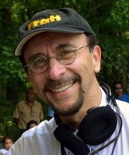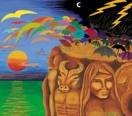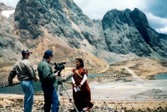I am a Peruvian filmmaker and visual anthropologist. I hold a doctoral degree in social anthropology and a master’s degree in visual anthropology from the University of Southern California as well as a master’s degree in archetypal psychology from Pacifica Graduate Institute. I have been working in documentary production since 1986 and have over twenty-five years of experience as a visual anthropology consultant with numerous educational and development organizations in various countries. My major ethnographic films include the award-winning Transnational Fiesta: 1992 and Transnational Fiesta: Twenty Years Later. In addition to these, I have produced numerous films on topics such as the oral history, cultural identity and school education among Amazonian indigenous peoples, community life in the U.S., Andean music and Andean authors. I am currently working on an ethnohistorical documentary project on the atrocities committed against indigenous people during the Amazonian “rubber boom” of the late nineteenth and early twentieth centuries and the repercussions of those atrocities on contemporary indigenous communities. I have also curated a museum art and history exhibit on the same subject, at the Museum (Place) of Memory, Tolerance and Social Inclusion in Lima, Peru in March 2017.
I have published several articles in peer-reviewed scholarly journals. My article, “Who Constructs Anthropological Knowledge: Toward a Theory of Ethnographic Film Spectatorship” (1992) is considered a classic in the field of visual anthropology. I teach anthropology at the University of Maryland University College and am the founding president of the Center for Visual Anthropology of Peru (CAVP).
Contact: wmartinez@cavperu.org
SELECTED WRITINGS
Forthcoming
Memories of the Human Forest: Abyssal Histories of Colonial Violence during the Rubber Boom. Revista del Lugar de la Memoria, la Tolerancia y la Inclusión Social. Lima: LUM.
2015
Foro Huellas: un hito para transformar la educación artística en el Perú. Lima: Sistema Nacional de Evaluación, Acreditación y Certificación de la Calidad Educativa.
2004
Tim Asch, Otherness, and Film Reception. In Timothy Asch and Ethnographic Film. E. D. Lewis, ed. pp. 205-228. New York: Routledge.
-
1998
-
Imaging Alterity: Interrogating the Production, Pedagogical Use and the Reception of Ethnographic Film. Ph.D. dissertation. Department of Anthropology, University of Southern California.
-
1996
-
Deconstructing the 'Viewer': From Ethnography of the Visual to Critique of the Occult. In The Construction of the Viewer: Media Ethnography and the Anthropology of Audiences. P. Crawford & S. Hafsteinsson, eds. pp. 69-101. Aarhus, Denmark: Intervention Press.
-
1995
-
The Challenges of a Pioneer: Tim Asch, Otherness, and Film Reception. Visual Anthropology Review 11(1): 53-82.
-
1992
-
Who Constructs Anthropological Knowledge? Toward a Theory of Ethnographic Film Spectatorship. In Film as Ethnography. D. Turton & P. Crawford, eds. pp. 130-161. Manchester: Manchester University Press.
-
1990
-
Critical Studies and Visual Anthropology: Aberrant vs. Anticipated Readings of Ethnographic Film. Commission on Visual Anthropology Review (Spring): 34-47.
-
1986
-
Applied Visual Anthropology in the Peruvian Andes. Society for Visual Anthropology Newsletter 2(1): 1-2.
About


Documentary
Advocacy
Creative
EthnoVisions



